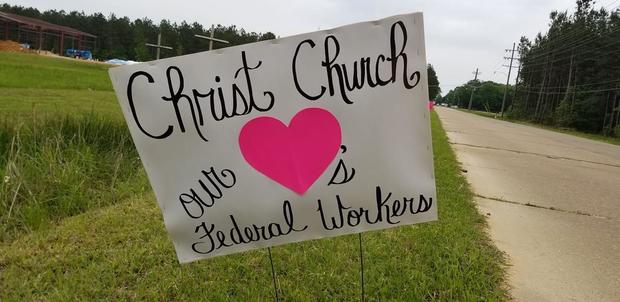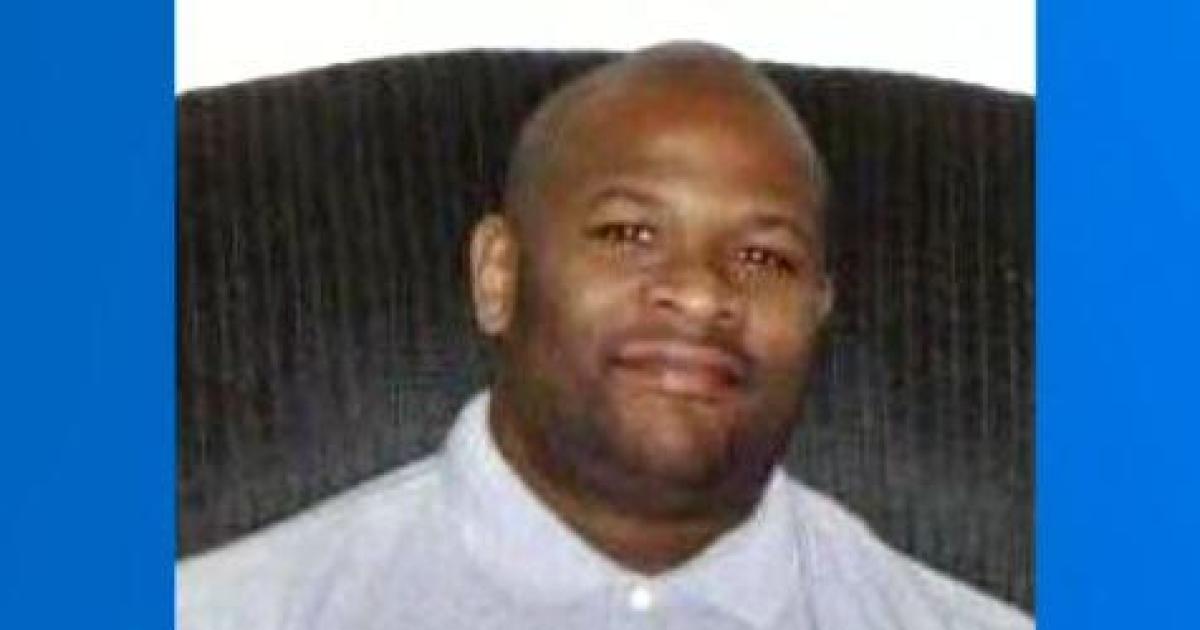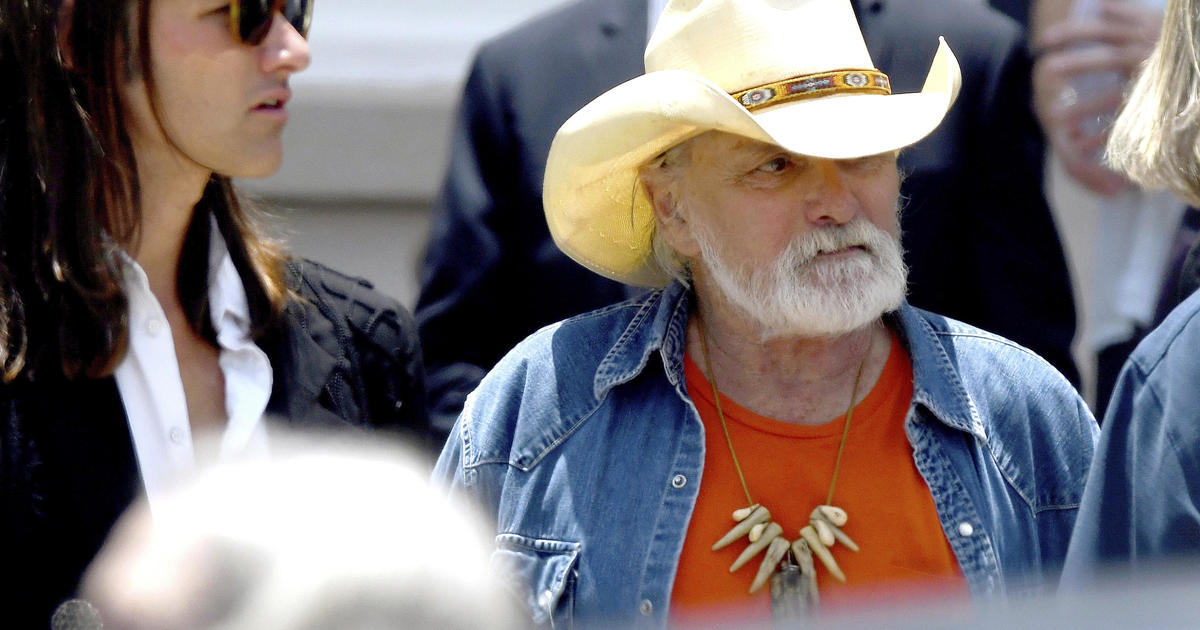Crisis at Oakdale: Coronavirus cripples federal prison in Louisiana
A federal prison in Louisiana has come into focus after five inmates housed at the facility died after contracting the coronavirus. Attorney General William Barr has urged the Bureau of Prisons to allow vulnerable inmates who qualify at FCI Oakdale I and other federal prisons to serve the rest of their sentences from home.
Oakdale, a low-security facility located about 200 miles west of New Orleans, typically houses 971 male inmates. The prison has reported 42 confirmed cases of COVID-19 among staff and inmates.
The Bureau of Prisons, which is responsible for 146,000 inmates spread across 122 facilities nationwide, said it had increased home confinement by 40% — affecting approximately 615 inmates since Barr's original request on March 26.
Advocates argue that Barr's directive, which now prioritizes some of the hardest-hit facilities like Oakdale, doesn't go far enough. On Monday, the ACLU filed a lawsuit seeking the release of inmates at the facility who are at a higher risk of serious illness or death from the virus. The suit argues that the attorney general did not establish concrete timelines and guidelines for local officials to release at-risk inmates.
CBS News spoke with four employees of FCI Oakdale, two of whom are union officials, and two mothers of inmates in the facility who expressed concerns about how the lack of preparedness for the virus has left inmates and staff sick and scared for their lives. CBS News agreed to let employees speak on the condition of anonymity.
One prison employee and a union official who works at the facility told CBS News that some of their colleagues who have been exposed to the virus in the main building have been assigned to work in Oakdale II, a smaller, adjacent facility on campus. That facility now has one confirmed case of the virus.
The bureau issued the following response when asked about the practice: "As much as possible, staff are being assigned to the same posts and not rotating, as an additional measure to mitigate the spread of the virus. Accommodations for staff who prefer to stay at the institution are available in the form of the previously-mentioned bunkhouse, shower and bathroom trailers and sleeping quarters in the staff training center."
Donald Fugitt, 35, is an inmate at the smaller facility, serving 17 and a half years for marijuana conspiracy. His mother, Carla Lunceford, said he suffers from asthma and was born with one lung smaller than the other, making him predisposed to respiratory illnesses.
Lunceford is also the primary caregiver and breadwinner for her family, taking care of Fugitt's two children while sending him commissary money and putting aside $4 for every 15-minute phone call they can get. Before the coronavirus pandemic, she worked as an inventory supervisor at a retail store in Texas, but she has since been laid off and is concerned that her son will suffer as a result.
"It's very devastating for us because to me that's the one thing that I can do for him, that's the one thing I can support him in, is to make sure he has what he needs," Lunceford said. "And now for us to not be able to do that as often as I could before — you know every time I sit down and make dinner for my family I think about, 'What is he doing without?' It's just heartbreaking."
Laurie Draper Jones is part of a group of mothers who offer each other support and exchange information about what goes on inside the prison. She is the mother of Jesse Ward, 39, an inmate in Oakdale I, who is serving 20 years after pleading guilty to a child pornography charge.
Jones works as a truck driver in Virginia, and since she still has a job during the nationwide economic downturn, she has chipped in, most recently by helping one out-of-work mother send money to her son inside Oakdale.
"When you have a loved one in prison you're serving time, too. We are all serving that sentence together," Jones explained. "It is not just one person behind bars and we go about our life, it is not that way. Every one of us was issued that same sentence. Every single day. Because you're going to sleep every night, not knowing if they're safe."
Jones has put in a request that her son is released to home confinement, but in the meantime, Ward has been assigned to work in the kitchen, cooking meals for the prison alongside 10 other inmates. She worries that inmates will hide symptoms out of fear of being transferred into solitary confinement to be isolated from others.
Jones communicates with inmates on the inside and produces a newsletter for them called the "Offender Connection," where she updates them on new cases or state laws that could affect their own cases. "Mostly, I try to always remind them that they matter and have not been forgotten."
Last week, an inmate wrote to her saying, "They've been hiding out in their cells, probably not wanting to get moved to quarantine. They discovered a couple guys in our dorm who were apparently in pretty bad shape and got taken out. Anyway, for the first time yesterday, they came around and took everyone's temperature instead of relying on self-reporting. That nabbed another two people that evening."
"I understand that the prison is not set up as a hospital, they are not set up for this. I totally understand that," Jones said through tears. "I believe the staff is afraid, just as afraid. They're all in this together. If this doesn't equal things out, I don't know what does. Staff and inmates alike are susceptible to the coronavirus so I understand everybody's scared."
Some correctional officers have been pulling far more than their normal eight-hour shifts, working overtime, sometimes more than 16 hours, due to a staffing shortage that has plagued the bureau long before the virus took hold, according to the prison employees CBS News spoke to. When asked for comment about the allegations of being overworked, the bureau did not address the issue and responded by saying, "We understand these are stressful times for both staff and inmates."
The bureau has, however, provided on-campus accommodations for staff. The "bunkhouse" has a sleeping area, shower and bathroom trailers.
Last week, the union that represents Oakdale's staff, as well as 700,000 other federal employees, filed a class-action lawsuit against the Bureau of Prisons and other agencies seeking "hazard pay," which would increase their hourly wage by 25%.
"The staff are stretched too thin down there," said Heidi Burakiewicz, who represents the American Federation of Government Employees (AFGE) in the lawsuit. "They are doing a miraculous, amazing job, but I am so worried about how they're going to keep this going, especially if additional people keep getting sick."
After the rise in cases, correctional officers have been issued more personal protective equipment, or PPE. Employees report they were initially given gloves, but they are now also provided with a mask and gown, according to the BOP. While the masks are not N95s, employees are pleased with the progress and have been told N95s will reach their facility soon.
"The BOP is using multiple acquisition strategies to obtain more PPE in competition with other organizations," a bureau spokesperson told CBS News. "Globally, all supply chains for PPE are stretched thin but the BOP continues to work through a variety of sources to maintain the supplies needed to maintain normal operations."
The bureau on Monday issued guidance on the use of facemasks. The memo, obtained by CBS News, indicates inmates will be issued one cloth mask per week, and staff will be issued two until shipments of cloth masks, made by prison industries, arrive. When ready, those shipments of cloth masks will be prioritized to Oakdale, Elkton, Danbury and other high-risk institutions.
"Staff and inmates should be advised that masks are to be used in interacting with persons when social distancing is not possible," the memo explains. "The masks are to prevent spread by asymptomatic persons of COVID-19; they are not being used as Personal Protective Equipment."
Upon entry to the prison, all employees are subject to a health assessment and get their temperature taken by medical staff. The screening tool, available on BOP's website, asks employees whether they have a cough, trouble breathing and a runny or stuffy nose.
While more resources are being provided and additional help is reportedly coming, the employees and inmates who spoke with CBS News said the institution wasn't prepared.
"It's just something you never thought would have happened when it started happening. It was taken very lightly. Then when we started sending inmates out, then it became very serious," an Oakdale employee told CBS News in a phone interview.
"I have worked at a penitentiary where we've had disturbances on the yard and those things we're prepared for," the Oakdale employee explained. "This is something that's unlike anything I've ever experienced. This is nothing we could have prepared for. However, something that we should have possibly had supplies for considering our care level at our institution."
Ronald Morris, president of the AFGE Local 1007 union and maintenance worker foreman at the prison, said the situation at the prison is dire. "A lot of staff have the attitude that because we're law enforcement staff, you know, first responders, that we can't stay home," Morris told CBS News. "If we stay home, who's gonna operate the institution?"
The bureau, however, says it has sent an additional 43 health care staffers to the prison. The employees come from a "variety of disciplines ... to relieve and supplement the existing staff." Over the weekend, staffers were also provided an anonymous support hotline with a Washington, D.C., area code, "to share your concerns, receive support, and engage in problem-solving."
The community around the Oakdale facility in Louisiana have started showing their support. An Oakdale employee shared photos with CBS News showing the town's support for federal workers, with prayers on signs and balloons lining the road to the facility.
"We are deeply concerned for the health and welfare of those inmates who are entrusted to our care, and for our staff, their families, and the communities we live and work in. It is our highest priority to continue to do everything we can to mitigate the spread of COVID-19 in our facilities," the bureau said in a Sunday statement.
But as for the inmates at Oakdale, Jesse Ward's mother, Laurie Jones, explains they are worried they have already been abandoned.
"It seems like it's fallen on deaf ears, nobody cares about the ones inside, " Jones told CBS News. "That's how they feel, they feel forgotten. They feel like they're the worst of society and nobody cares, and nobody cares if they live or die. But their family cares a lot. My son has served 13 years of a 20-year sentence. And we're afraid this is gonna be a death sentence now. He's four years from coming home, and this is not how it's supposed to end."
Cassidy McDonald contributed to this report.




